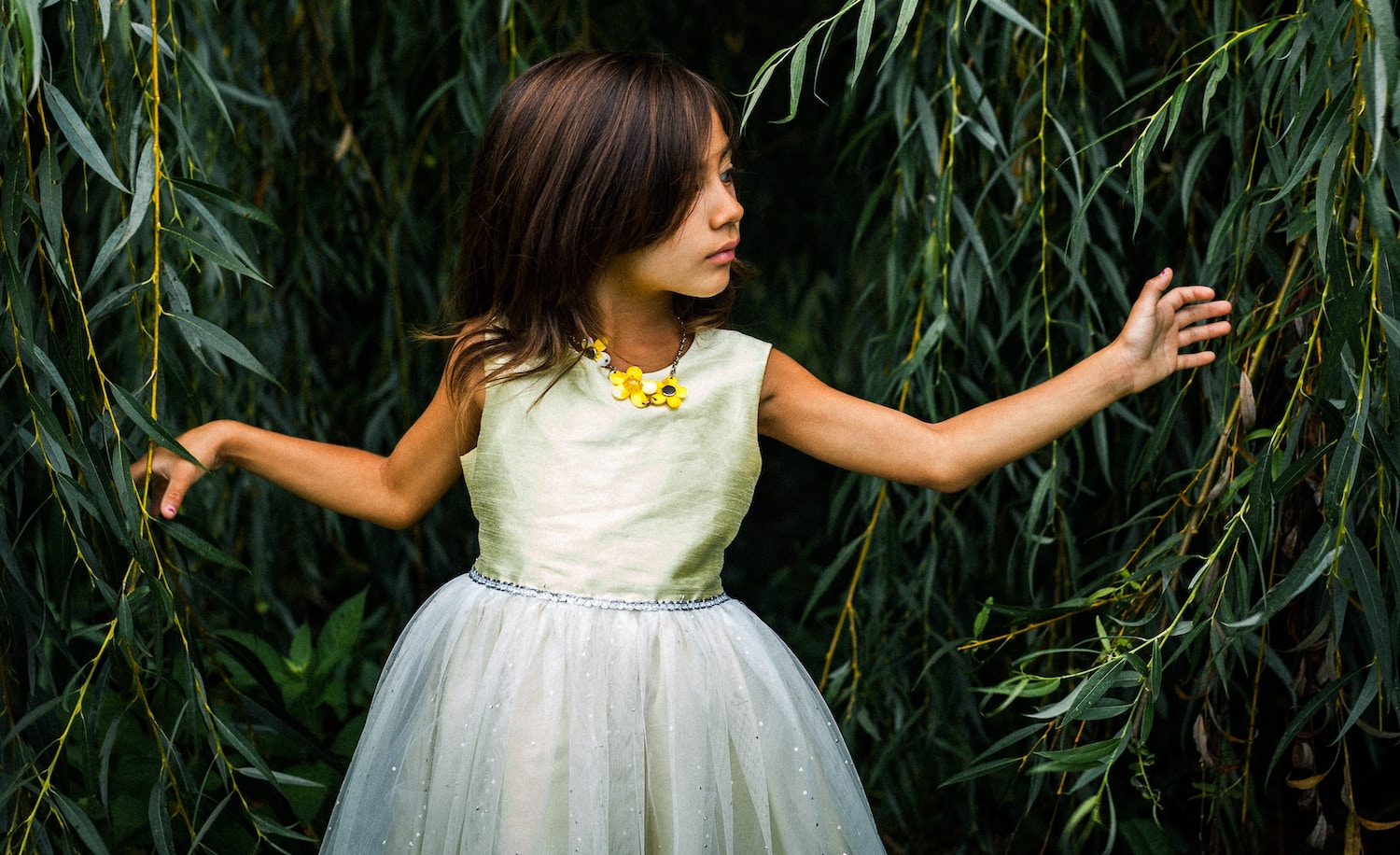Is Your Child Highly Sensitive?

I wish I’d known when I had my babies that I was a highly sensitive person — and that they might be too. I look back now on a number of times when I was baffled by my first child’s behavior. She was a premature baby, but the ONLY one crying all the time in the NICU unit.
During those early baby months, I often found myself shielding her eyes to avoid her getting overstimulated. No one else in my mother’s group needed to do that with their babies. And as a toddler, she was social and happy but she would become overwhelmed easily, start crying, and just not be able to calm herself down. I can see now that those moments were actually a sign of her highly sensitive nature.
Highly sensitive kids are amazing. In our society, sensitivity can be seen as a problem or disadvantage. When you have a baby or young child that gets overstimulated, has trouble sleeping, and finds it hard to self-soothe, it definitely seems like a problem. But there are many incredible things about being highly sensitive.
Highly sensitive people are empathetic to others and animals, are very tuned in to emotions, think deeply, and see details others miss. Highly sensitive kids are curious, full of wonder, kind, and reflective. They surprise you with their ideas and the little amazing things that they notice in the world around them!
What Makes Someone Highly Sensitive?
About 15-20 percent of the population are highly sensitive. It’s also a trait that both introverts and extroverts can have. Often, people think HSPs are shy or timid, but that’s not necessarily accurate. Yes, highly sensitive people can be shy and quiet, but they can also be confident, talkative, or excitable.
High sensitivity looks different in different people but, according to Dr. Elaine Aron, there are four areas (D.O.E.S) that all highly sensitive people share to some degree:
1. Depth of Processing
Highly sensitive people think deeply about things. They reflect on ideas or on what they have seen or done. They often spend a lot of time thinking before they act or take a long time making decisions.
2. Overstimulation
Highly sensitive people, especially children, get overstimulated more easily than others of the same age because of all the deep processing and detail noticing that they are doing. Of course, all young children and babies get overstimulated sometimes — the world is so new! So the key element here is that they are MORE easily overwhelmed by stimulation than others their age.
3. Empathy/ Emotional Responsiveness
Feelings are the language of highly sensitive people. They view the world through an emotional lens. HSPs are extremely aware of their own emotions and those of others and can even “feel” or take on the emotions of others.
4. Sensitivity to Subtleties
HSPs tend to notice things or make connections that others fail to see. They’re naturals when it comes to picking up on little details or subtle cues. This doesn’t mean they have super-hearing or vision; it’s simply what happens when the nervous system is wired to process stimulation deeply. The result is that HSPs will notice seemingly “insignificant” distractions, noises, smells, or tastes that others don’t seem to notice.
Highly sensitive people have all four of these aspects. Some other traits or conditions such as giftedness, autism, Sensory Processing Disorder, anxiety, and ADHD can overlap with high sensitivity. For example, a child with autism may despise the smell of hot dogs cooking in the school cafeteria, and a highly sensitive child may also be quite bothered by the smell. However, autism and other conditions are not the same as high sensitivity, and they have different biological roots. Also, be aware that someone can be both highly sensitive and have ADHD, for example.
Signs Your Child Is Highly Sensitive
Is your child highly sensitive? Here are 11 things to look for:
- Time limits/deadlines or harsh correction causes a meltdown.
- They asks a lot of deep questions.
- They seem to be an “old soul” or very intuitive — they often surprise you with their wisdom!
- They notice when others are feeling down, even if the other person hasn’t expressed it out loud.
- They’re quite bothered by noisy places (like a restaurant or a busy day care) or get easily distracted by repetitive sounds, like a ticking clock.
- They feel things deeply and are highly emotional.
- They can’t stand certain sensations, like wet clothes.
- Generally, they prefer quiet play over very active play.
- They may use large words for their age.
- They don’t cope well with change or big surprises.
- They notice details, such as in art or nature, or if something has been changed.
Each child is different, and especially if they are an extrovert or high sensation seeker, they might behave differently than the ways described in this list but still fit into the four highly sensitive aspects above.
Want to learn more? Check out Dr. Elaine Aron’s book The Highly Sensitive Child if you think your child may be a highly sensitive person.
You might like:
- What Happens When a Highly Sensitive Person Grows Up With Emotional Neglect?
- Why Do Highly Sensitive People Hate Busy Schedules and Feeling Rushed?
- Why Highly Sensitive People Get Mentally and Emotionally ‘Flooded’
Did you enjoy this article? Sign up for our newsletters to get more stories like this.
We participate in the Amazon affiliate program.
